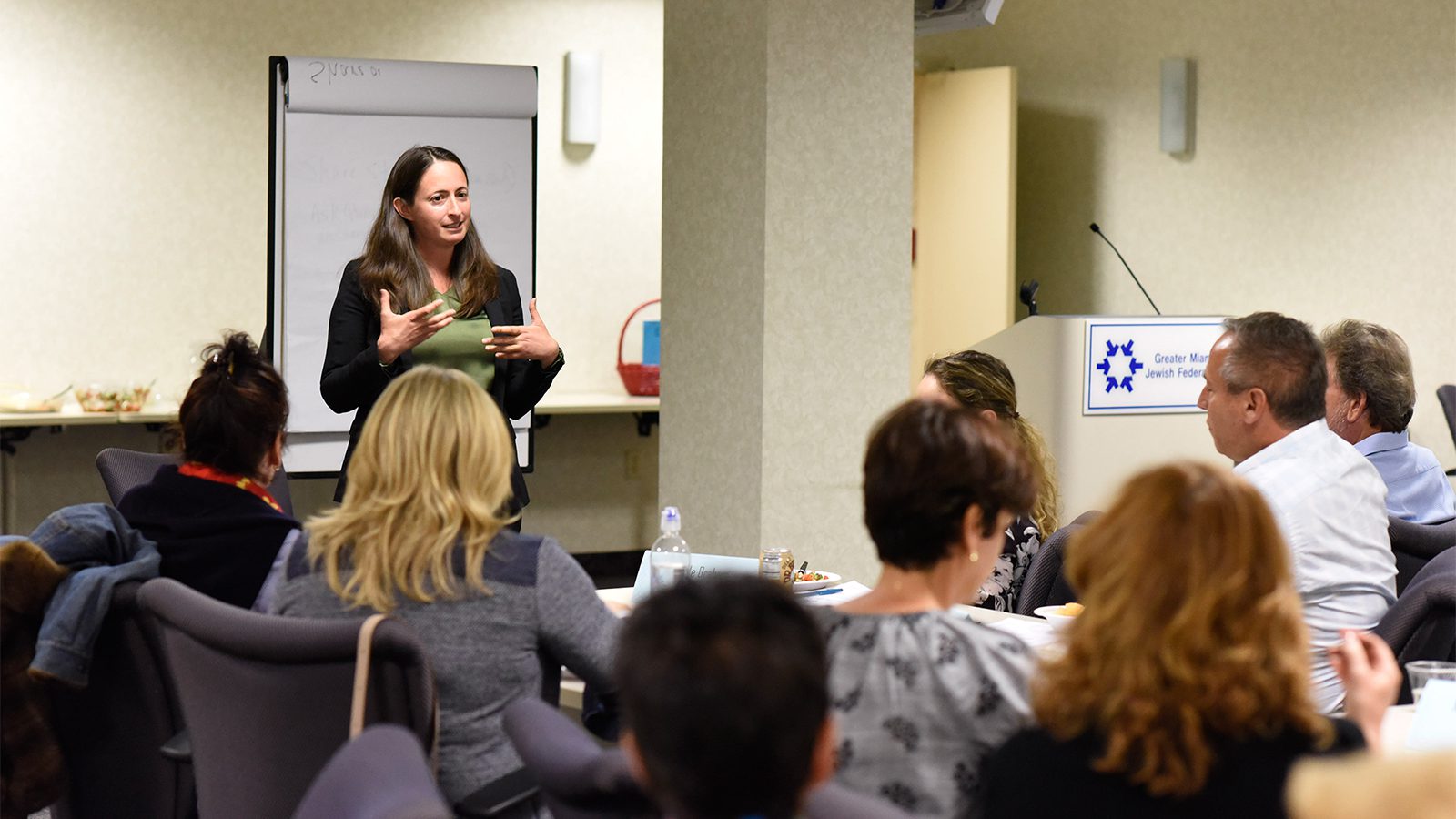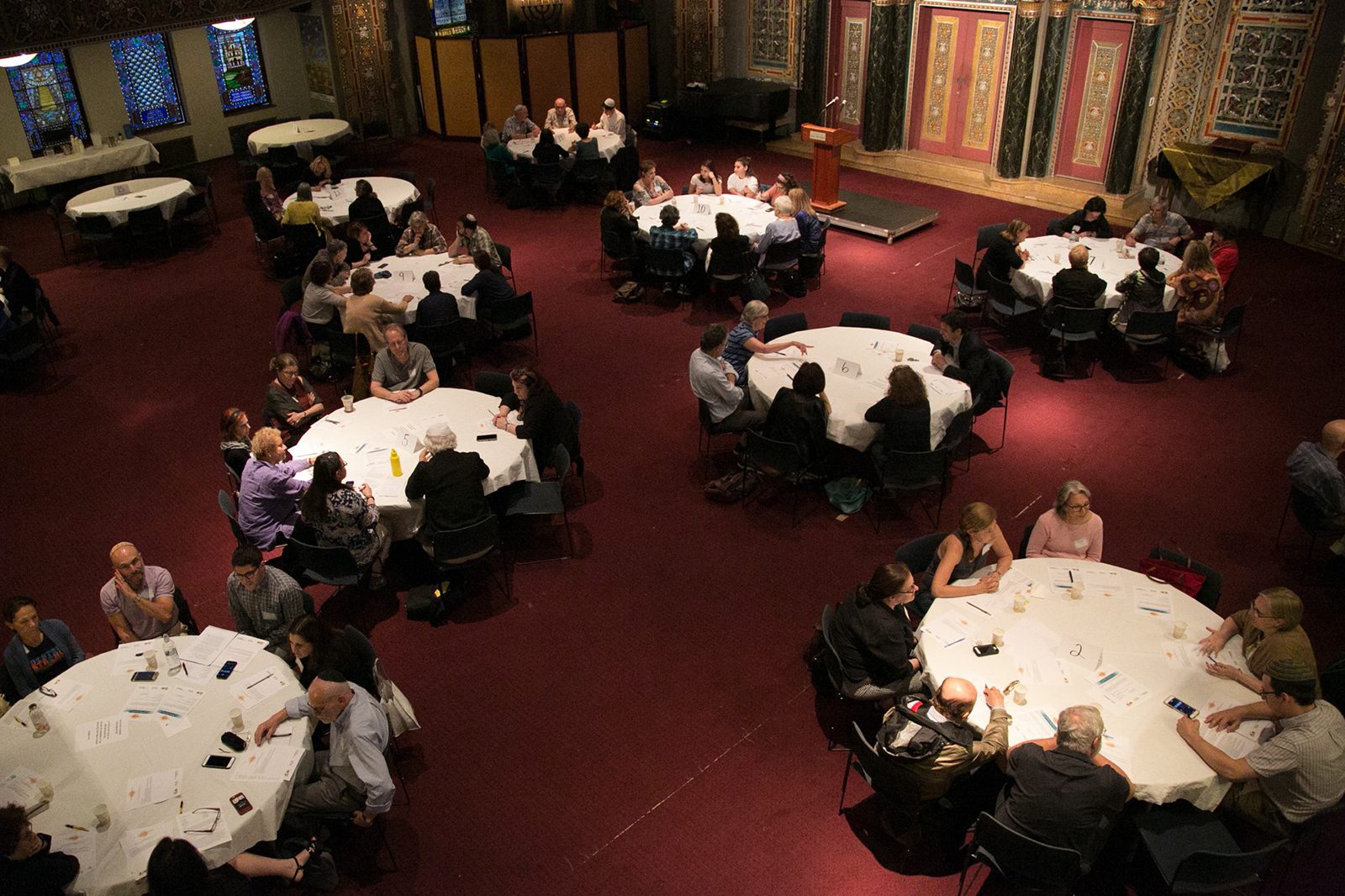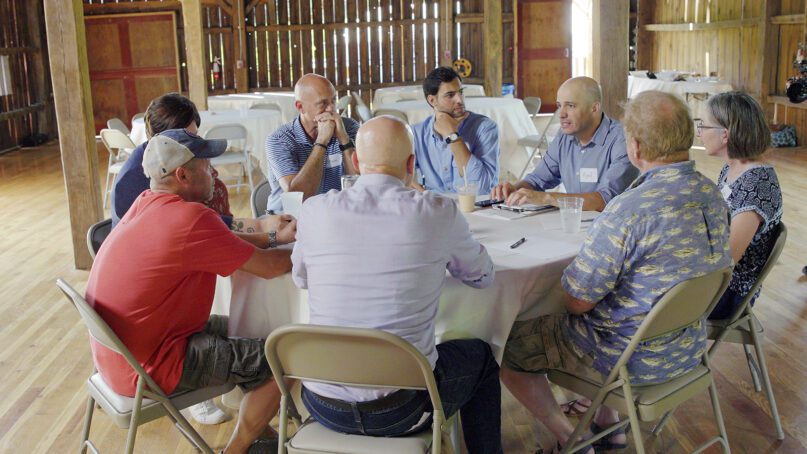(RNS) — The topics were loaded: flags in the church sanctuary; separation of church and state.
Nine United Methodist pastors from South Carolina with differing political views met online with a facilitator recently to learn a set of techniques for talking about such polarizing political differences.
The sessions were meant to teach them how to actively listen and demonstrate understanding.
As each pastor spoke about his or her views on the topic, their peers took turns reflecting back on what they said in a practice meant to help the pastor feel understood.
It was harder than many in the group thought.
One pastor, trying to restate a colleague’s view, remembered a small detail not relevant to the larger point. Another did what many pastors do — she added her own homiletic gloss to the argument. Yet another pastor admitted he stopped listening to the details of his fellow pastor’s position because he was already trying to formulate his own response.
Polarization is dividing American society, not only politically but socially, geographically, ideologically and religiously. Distrust, contempt, even enmity are rising. United Methodists are splitting over the ordination and marriage of LGBTQ people. Jews are divided on their views of Israel. Evangelicals are torn about coronavirus restrictions, vaccines, critical race theory or whether the 2020 election was stolen.
Resetting the Table, a 8-year-old organization dedicated to creating meaningful dialogue across political divides, is trying to engage clergy and congregations — among other groups — in more productive discussions.
RELATED: Woke war: How social justice and CRT became heresy for evangelicals
The group is under no illusions it can resolve conflict or foster agreement. Its training sessions do not attempt to produce consensus or even find common ground. There’s no expectation participants might walk away thinking differently about an issue.
Rather, the techniques they teach are meant to allow people with deep differences to see each other in all their humanity.
“Listening to those who disagree with us is part and parcel of what it means to listen for God’s voice,” said Rabbi Melissa Weintraub, the founding co-director of Resetting the Table. “We need to investigate our differences courageously.”

Rabbi Melissa Weintraub, left, leads a Resetting the Table discussion about Israel on May 15, 2018, in Miami, Florida. Photo by Michele Eve Sandberg
The organization has so far trained some 43,000 people in a carefully structured process that allows participants to listen, speak and challenge each other respectfully. With funding from Steven Spielberg and Kate Capshaw’s Hearthland Foundation, it works not only with clergy and congregations but also with entertainment industry workers, journalists and care professionals. But its work among religious groups is especially critical because those communities are among the last places where people with differing worldviews gather together.
Weintraub has become an expert on disagreement. As she was finishing her rabbinic degree from Jewish Theological Seminary, she co-founded Encounter, a Jewish organization that takes U.S. Jews on trips to Bethlehem, East Jerusalem and Ramallah to meet with Palestinians and better understand the Israel-Palestinian conflict.
Resetting the Table, her newest venture, does much of its work in Jewish settings. But with a staff of 11 and a network of facilitators, it has expanded its training to include clergy from other faith traditions, mostly Christian. (A short documentary about the group’s work in rural communities in Wisconsin and Iowa, shows how the process works.)
The Rev. Robin Dease, pastor of St. Andrew by the Sea in Hilton Head, South Carolina, and a former district superintendent in the state’s United Methodist Conference, said the tensions she sees in her own denomination led her to propose the two sessions among her clergy colleagues.
United Methodists are in the process of splintering, Dease said, and people aren’t engaging with one another.
“People leave abruptly without any conversation, without gathering to delve into the issue: theologically, spiritually, exegetically and socially. We’re not having the conversation,” Dease said.
Dease, who also serves on the denomination’s social justice arm, the General Board of Church and Society, had heard about Resetting the Table and participated in an interfaith training session for clergy from Southeastern states earlier this year. After it concluded, she picked a group of fellow pastors — some liberal, some conservative — from her own denomination to deepen the practice.
An initial session last month asked the participants to talk about formative life experiences. It then asked the clergy to complete a survey about their beliefs, which the facilitator used to assess broad areas of disagreement. During the next session, people of differing views were matched in smaller groups.

A Resetting the Table event in 2017. Photo courtesy of Resetting the Table
Resetting the Table techniques are modeled after a practice known as “transformative mediation.” Unlike traditional mediation, which aims to resolve disputes by arriving at mutually acceptable solutions, transformative mediation seeks to give people skills to see and understand the other person’s point of view so they are more willing to relate to one other respectfully.
The idea, said Eyal Rabinovitch, the co-executive director of Resetting the Table, is to disarm conflict’s destructive powers.
“One of the greatest insights from the world of trauma therapy is that people are their most receptive selves when they are seen as they wish to be seen,” Rabinovitch said. “We want people to say, ‘Yes, that’s exactly me.’ That makes all the difference in producing receptivity. Lots of changes can happen in those moments.”
When differences emerge, participants are asked to slow down the conversation, pause their own reactions and listen carefully. They are urged to look for “signposts of meaning,” words or expressions that convey particular passions. They are then asked to relate back what they heard the speaker say and to ask if their rephrasing is accurate.
The training was powerful for a Lynchburg, Virginia, evangelical church that signed up 15 members to participate in a set of trainings this past April. Mosaic, a small church that meets in a shopping center, had experienced disagreement over pandemic closures. Some members left. Others nursed grudges for the church’s willingness to follow government-issued mandates they felt were an infringement on their liberties.
“I was fascinated to learn that it was very easy for me on some issues to take a very set view and not have a generous interpretation of what the other individual believes,” said Ron Miller, a Mosaic Church elder who works as the online dean for the School of Government at Liberty University. “The idea of looking at the other side of the issue and interpreting it more generously is a game changer if we apply that as a daily discipline.”
Miller is now working with Resetting the Table to convene a training for Lynchburg clergy this fall. He thinks the practices might also be helpful for Liberty University employees, too.
Rabinovitch acknowledged that clergy with big public platforms and a following that hinges on their extreme positions are unlikely to want to participate because doing so requires a degree of vulnerability. But they say most people yearn to communicate better.
Jeff Nitz, an elder at Mosaic Church in Lynchburg, said the work may well save society from an escalating cycle of mutual distrust.
“It’s about getting closer to your neighbor,” he said. “We’re not caricatures. We’re real people. You can’t have that if you’re not listening to the other.”
RELATED: How Christian nationalism paved the way for Jan. 6





